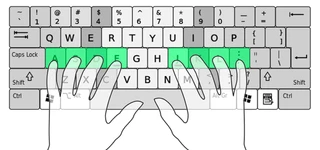Summary: There are plenty of benefits of using daily task planner apps like maintaining meeting schedules, tracking task times, creating multiple workspaces, and so on. Let’s learn more about these apps and why you should leverage them below.
Without proper planning and management, it might become difficult to complete tasks on time with adequate usage of resources. Therefore, it is better to stay organized and create a schedule to manage your tasks, meetings, events, and so on. That’s where a daily planner app can come in handy to help you manage your daily schedule.
By using these apps, you can create tasks, track their progress, schedule meetings, share appointments with others, and so on. In this article, you will learn about multiple daily schedule planners to streamline your everyday schedule.
What is a Daily Planner App?
A daily schedule planner is an application that helps in organizing tasks, events, and appointments in a centralized location. The app is designed to assist you in maintaining a track of daily schedules, prioritizing tasks, and completing tasks on set timelines. Let’s learn about some of the essential features you get in a daily planner app.
Essential Features of the Daily Planner Application
The application can help you in managing your tasks, creating to do lists, prioritizing tasks, and so on. Let’s learn about more features of daily planner apps below:
- Task Management: These apps help in creating, organizing, and prioritizing tasks on a daily, weekly, and monthly basis.
- Calendar Integration: With it, you can sync all your calendars to manage events, appointments, etc.
- Reminders and Alerts: Daily routine planner lets you set alerts and reminders for important activities and deadlines.
- To-Do Lists: Create and manage to do lists of tasks and goals you want to accomplish.
- Collaboration: It helps in sharing schedules and tasks with others for collaborative planning.
- App Integration: Planning apps can integrate other productivity apps.
7 Top Daily Planner Apps for Mobile in 2025
| Top Planner Apps for Daily Tasks | Suitable for | Play Store Rating | App Store Rating |
|---|---|---|---|
| ClickUp | Best for collaborating with teams in real time | 3.7 | 4.7 |
| Todoist | Best for task tracking | 4.5 | 4.8 |
| Notion | Best for taking notes and collaborating in real-time | 4.6 | 4.6 |
| Trello | Best for tracking task progress | 4.3 | 4.5 |
| Microsoft Outlook | Best for managing calendar and email | 4.7 | 4.8 |
| Any.do | Best for managing daily tasks | 4.4 | 4.6 |
| Google Calendar | Best for scheduling tasks and meetings | 4.4 | 4.4 |
Here, we will discuss the best daily planner apps along with their features, pricing, pros and cons, free trial, and ratings. The list will help you to choose the right app for you.
ClickUp: Best for collaborating with teams in real time

ClickUp is a comprehensive productivity software designed for organizations to plan and collaborate on different projects, documents, product designs, etc. From planning campaigns, assigning tasks to managing calendars, and visualizing your work, ClickUp daily planner app can come in handy at every step.
Features of ClickUp
- Generates meeting notes and task lists
- Develops virtual floor plan for future tasks
- Jots down notes and ideas in a notepad
- Creates and edits tasks in offline mode
Pros and Cons of ClickUp
- With ClickUp, you can also automate tasks like setting due dates and updating the task status.
- It can create multiple workspaces to organize and manage tasks for different departments.
- Its interface is not very intuitive to be used on laptops.
Free Trial: 7 days
ClickUp Pricing: Free plan available | Paid plan starts from INR 582.97/user/month
Todoist: Best for task tracking

Todoist is a task manager and to-do list app that can help create, edit, and manage tasks. This software is of great help in creating to-do lists and sharing them with your team members in real time. It also helps with task history management, task visualization, task permissions management, calendar layout adjustment, and so on.
Todoist Features
- Adds due date and time in tasks
- Uploads media files up to 100 MB in a task
- Offers various layouts for lists, boards, and calendar
- Adds unlimited guests in tasks
- Provides 90+ integrations
Pros and Cons of Todoist
- It offers an AI assistant that can help you with creating tasks.
- You can also set reminders for tasks.
- You cannot create subtasks with due dates in Todoist.
Free Trial: 30 days
Pricing of Todoist: Free plan available | Paid plan starts from INR 665.42/user/month
Notion: Best for taking notes and collaborating in real-time

Notion is a workspace software that provides multiple productivity tools for creating documents, taking notes, managing databases, creating and assigning tasks, etc.
With its blocks, you can create customizable pages and databases as per your needs. It comes with collaboration features to organize, plan, and collaborate on tasks via a single dashboard.
Notion Features
- Uploads unlimited files and media
- Filters and sorts the data
- Manages and stores pages history
- Adds guests’ collaborators in a tasks
- Exports workspace data in PDFs
Pros and Cons of Notion
- You can also manage granular permissions for your tasks in it.
- You can add up to 250 collaborators in a single task.
- It does not provide any built-in feature for data visualization and organization.
Free Trial: Not available
Pricing of Notion: Free plan available | Paid plan starts from INR 665.42 /user/month
Trello: Best for tracking task progress
Trello is a project management application to manage your projects, workflows, and tasks. Within this tool, you can visualize your tasks via cards, boards, and lists and add files and checklists in them. Some other features include creating board rules, send automated emails, raising tasks tickets, maintaining task calendars, and so on.
Trello Features
- Sets due dates and deadlines for tasks
- Supports built in task automation
- Offers multiple templates to create tasks
- Creates unlimited boards to represent task
Pros and Cons of Trello
- It provides multiple view types to visualize tasks.
- Trello also lets you restrict permission to the tasks assigned.
- It does not provide any shortcuts to create tasks boards.
Free Trial: 14 days
Trello Pricing: Free plan available | Paid plan starts from INR 415.84/month
Microsoft Outlook: Best for managing calendar and email

Microsoft Outlook is an email client service that allows users to send and receive emails, manage calendars, schedule appointments, store contacts, and organize tasks.
It integrates with other Microsoft Office applications and is commonly used for both personal and professional communication within and outside the organization.
Features of Microsoft Outlook
- Schedules tasks, events, and emails
- Collaborates with Microsoft 365 groups
- Filters and groups tasks to streamline task management
- Provides multiple shortcut keys to manage calendars
Pros and Cons of Microsoft Outlook
- You can manage the history of your emails.
- It enables you to add mentions in emails for easy collaboration.
- The functioning of android app is very slow.
Free Trial: Free daily planner software
Pricing of Microsoft Outlook: Free daily task planner for personal use. Paid under Microsoft 365 plan starting from INR 582.46 /user/ month.
Any.do: Best for managing daily tasks

Any.do can help you to manage your tasks, projects, and team’s work. With its intuitive interface, you can create daily tasks on the go. This daily planner app can be used for sharing task lists, assigning tasks, monitoring tasks progress, and collaborating with team members.
Features of Any.do
- Syncs and manages calendars
- Provides +100 workflow templates
- Adds color tags to the tasks
- Adds mentions to the tasks for collaboration
- Sets both location based and recurring reminders
Pros and Cons of Any.do
- It can integrate with multiple project management tools like Trello, Asana, ClickUp, Jira, Todoist, etc.
- It lets you sync data from multiple devices.
- It does not offer an option to add sub tasks in the main task.
Free Trial: 7 days
Any.do Pricing: Free plan available | Paid plan starts from INR 249.79/month
Google Calendar: Best for scheduling tasks and meetings
Google Calendar allows users to create and manage events, set reminders, and share calendars with others. With it, you can create and manage events, set tasks reminders, schedule appointments, filter out specific events, and so on.
With its multiple Calendar Views options, you can view schedules on a regular, weekly, and monthly basis.
Features of Google Calendar
- Marks tasks as complete and incomplete
- Sets due dates and deadlines for projects
- Schedules meetings and events
- Automatically adds emails about events, concerts, flights, etc.
Pros and Cons of Google Calendar
- It offers a time analysis to help you find the time you spend on each task.
- You can also share appointment schedules with external clients and partners.
- Its UI is quite confusing when you work with multiple calendars.
Free Trial: Free planning app for daily tasks.
Pricing of Google Calendar: Free plan available | Paid plan starts from INR 416.56 /user/month
How to Choose the Best Planner App for You?

To select the best daily planner app for your organization, make sure you consider the following factors:
- Productivity Features: Choose a daily schedule app that comes with plenty of productivity features to collaborate on projects, manage task details, schedule meetings and events, etc.
- Integrations: The option to integrate with all the apps that you are using on a regular basis like Outlook, Slack, and Zapier will help in streamlining work.
- Compatibility: Make sure the app you are planning to buy is compatible with the devices you use on a regular basis.
- Budget: Check the app pricing and ensure that it falls within your estimated budget.
Conclusion
Daily planner apps provide a seamless way to organize tasks, set priorities, and enhance productivity. With features like setting up reminders, managing calendars, and creating to-do lists, these apps enable users to stay on top of their schedules and complete their projects efficiently.
In this article, we have enumerated upon some of the best daily planner apps that you can use to manage your calendar. However, consider your requirements before selecting any of them.
FAQs Related to Daily Planner Apps
What is the app that organizes your day for you?
There are several daily calendar planner apps available to manage your everyday schedules. Some of the most popular apps include ClickUp, Todoist, Notion, Trello, Microsoft Outlook, etc.
Which daily planner is best?
Trello, Microsoft Outlook, Any.do, and Google Calendar are some of the best daily planner apps that you can consider for yourself.
Which is the best daily work planner apps?
Todoist, Trello, ClickUp, Google Calendar, TickTick, and Notion are some of the best daily work planner apps to plan and manage your daily tasks.
Are daily planners useful?
Yes, they are helpful as they let you organize your tasks and set deadlines for them. Moreover, they help you to keep a tab on scheduled meetings and appointments in a centralized calendar.
Do I need a daily planner?
Yes, by using a daily planner app, you can keep your daily tasks organized in one place that makes it easier to locate and remember tasks you need to accomplish.
Varsha is an experienced content writer at Techjockey. She has been writing since 2021 and has covered several industries in her writing like fashion, technology, automobile, interior design, etc. Over the span of 1 year, she has written 100+ blogs focusing on security, finance, accounts, inventory, human resources,... Read more




























